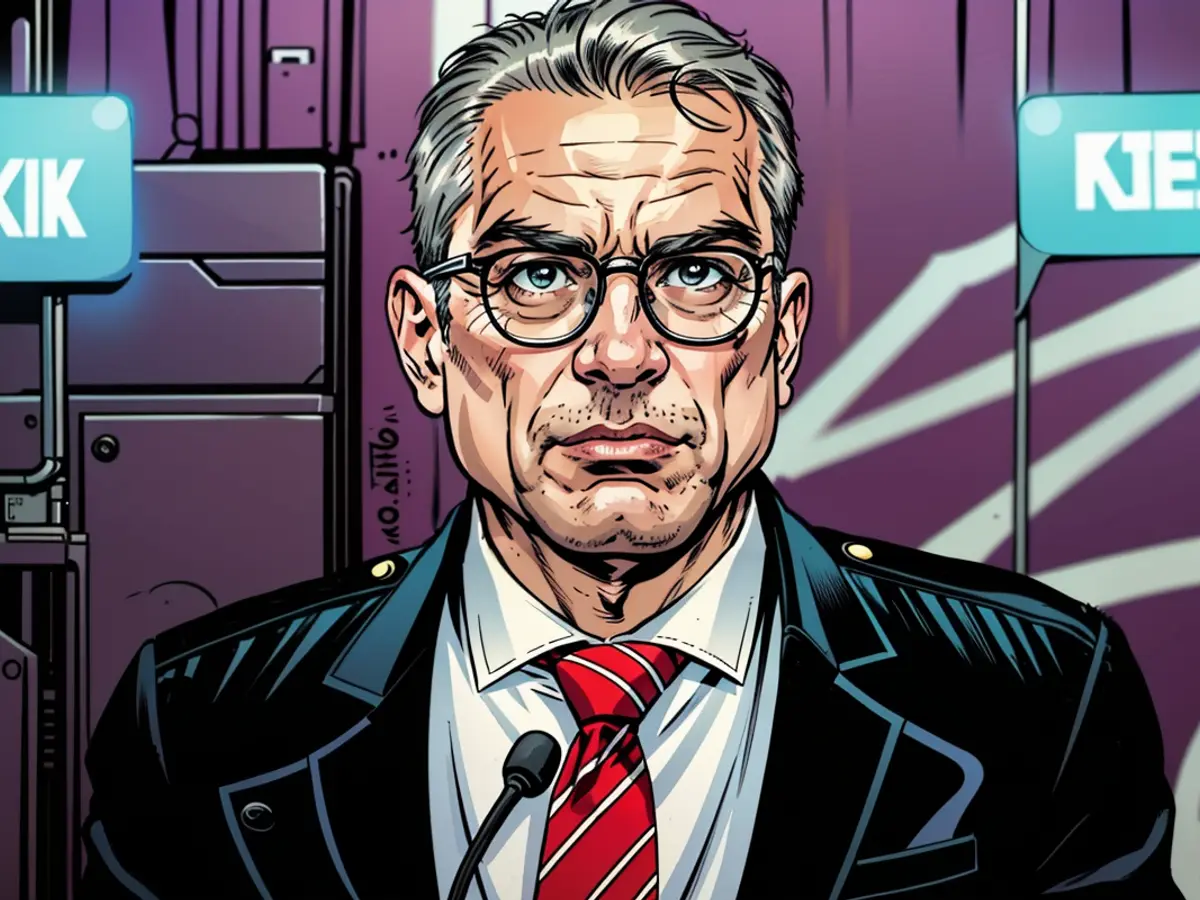Armament - Dobrindt on rearmament: Scholz must correct the budget
CSU-State Group Leader Alexander Dobrindt expects Chancellor Olaf Scholz (SPD) to correct the defense budget after the announcement of far-reaching US weapons in Germany. "After the NATO summit, Scholz must now deliver. His promises to NATO partners through the budget proposal for 2025 are clearly not fulfillable," criticized the chairman of the CSU parliamentarians in the Bundestag in Oberammergau.
Defense budget must enable investments in deterrence
"It's about correcting the budget consultations from last week and presenting a defense budget that also makes these deterrence investments, in new weapons systems possible," demanded Dobrindt. The defense budget of currently around 52 billion Euros should, according to the spending decisions of the traffic light government, only grow by approximately 1.2 billion Euros. Defense Minister Boris Pistorius (SPD) had clearly demanded more and an exception for these expenditures from the debt brake.
At the margins of the NATO summit in Washington, it became known that the USA want to station weapons systems in Germany from 2026 that reach far into Russia. Among them should be Tomahawk cruise missiles with a range of up to 2500 kilometers, which can technically be nuclear-armed, as well as SM-6 air defense missiles and new hypersonic weapons. Russia and China reacted sharply to the announcement.
CSU politicians: Europe must develop far-reaching weapons systems
In addition to the stationing of Americans, far-reaching weapons systems must also be developed in Europe, demanded Dobrindt. "That is an important contribution to strengthening our own security situation." He doubted, however, that there would be the willingness to provide additional financial resources for this from Scholz and the traffic light government.
Dobrindt expects broad support for stationing plans
Regarding the question of whether he expects new protests like during the rearmament debate in the 1980s, Dobrindt said that it is becoming apparent that "there is a broad understanding in society that there is a serious threat situation caused by Putin's one-sided actions." Therefore, he assumes that "there is broad support in the public, in society for these new stationing plans."
Warning against political misuse
Looking ahead to the September elections in the eastern states, Dobrindt said that it is already noticeable that "from the left and from the right, this situation is being exploited, misused." He added: "That is not only despicable, but also dangerous." The security of Germany must be strengthened through greater deterrence. "Whoever questions that is causing uncertainty in Germany and Europe."
Dobrindt emphasized the importance of Germany's role in NATO, stating that the nation should faithfully adhere to its commitments. He called on Scholz to adjust the defense budget accordingly, citing the necessity to invest in deterrent weapons systems in the face of evolving threats, such as those posed by Tomahawk cruise missiles, SM-6 air defense missiles, and new hypersonic weapons potentially stationed in Germany from 2026.
The US announcement sparked concerns in Russia and China, leading Dobrindt to advocate for the development of advanced weapons systems within Europe as a crucial step towards bolstering European security. However, he expressed doubts about the financial commitment from Scholz and the traffic light government towards this initiative.
Unequivocally opposing political exploitation of this situation, Dobrindt expressed concern over left and right-wing misuse of the security challenge posed by Putin's actions. He reiterated that Germany's security should be strengthened through increased deterrence, warning that doubting this approach would breed uncertainty in both Germany and Europe.
Regarding public opinion, Dobrindt predicted broad support for the new stationing plans, observing a growing understanding in society of the serious threat posed by Putin's actions. This realization, he believed, would help quell potential protests like those witnessed during the 1980s rearmament debate.
Dobrindt commended the CDU/CSU for its long-term dedication to military matters and the strengthening of the Bundeswehr. He believed that Germany's participation in maintaining international security and stability was evident in its contributions to NATO and the United Nations, emphasizing that Germany should not waver in its commitment to these partnerships amid shifting global developments.
The Federal Parliament should collectively assess the defense budget's potential for upgrading and modernizing the Bundeswehr's weapons systems, ensuring that the necessary resources are allocated. Dobrindt called for public dialogue on this matter, believing that engaging the German people in the decision-making process would help build support for strengthening the nation's defense capabilities.
Secretary General of NATO, Jens Stoltenberg, appreciated Germany's contributions to the alliance and emphasized the need for all members to uphold their commitments. Stoltenberg agreed that the changing security landscape necessitated Europe to develop its own advanced weapons systems, stressing that collective defense was the cornerstone of NATO's mission.
Chancellor Olaf Scholz addressed Dobrindt's criticism and pledged to work closely with defense strategists to ensure a robust and effective defense budget. Scholz acknowledged that recent developments had highlighted the need for increased investment in deterrent weapons systems and was open to exploring ways to make these expenditures compatible with the debt brake constraints.
In the face of mounting tensions and conflicts in Eastern Europe, particularly in Ukraine, Germany, as a significant European player, must revisit its defense and military strategy in collaboration with NATO. This means coordinating with partners to establish a unified European response mechanism aimed at safeguarding the region's security and stability.
As scholarly research and discussions on defense policy continue at institutions such as California State University, it is crucial to critically engage with various perspectives and engage in informed discourse. This academic dialogue will contribute to fostering a nuanced understanding of defense and security challenges before the nation, providing valuable insights for policymakers and informing public opinion.








